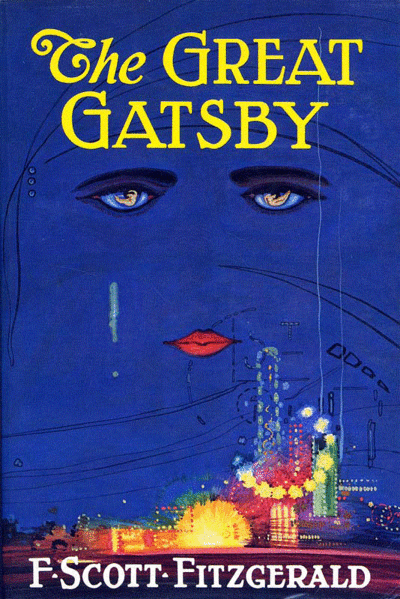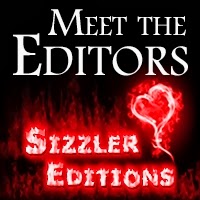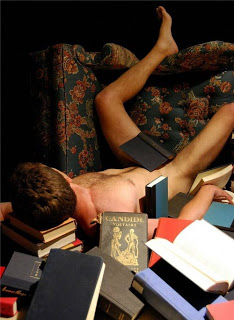by Kathleen Bradean
I watched the premier episode of Da Vinci’s Demons last night. The
historical inaccuracies drove me a bit bonkers, and I’m no history
student, so you know they were obvious and bad. Don’t even get me started on the bare chests and women’s
clothes that were about as period as a Klingon at Ren Faire. But if I
approach the show as alternate history/ steampunk renaissance, I suppose
I can forgive how sloppy it is. What I can’t forgive are the multitude
of “As you know, Jim” speeches. Whether its television or a novel,
writers should do everything they can to avoid them.
So,
what’s an “As you know, Jim,” speech? If you’ve watched any of the CSI
shows, you’ve heard these. It’s when a character says something along
the lines of “As you know, Jim, I’m going to take this piece of crime
scene evidence and try to find latent prints on it. I will do this
by…” But Jim isn’t a sentient squid from outer space who has never heard of a finger, much less a finger print. He’s another CSI tech
and he knows damn well how evidence is processed because it’s his job.
So why is it being explained to him as if he knows nothing about it?
Because the other character isn’t explaining it to Jim. He’s really explaining
it to the viewer/reader who presumably doesn’t know (although, after how many seasons of CSI? if you’re a fan, I would hope you know). On CSI, “Jim” usually responds with
“Yes, and then you’ll match any latent prints you find against our
suspects, thus hopefully linking one to the scene of the crime,” while in
real life, Jim would say, “No shit, Sherlock. Want to explain breathing
to me next?”
“As you know, Jim” conversations
unfortunately happen a lot in science fiction and fantasy because
there’s a whole world with different rules, technology, politics,
religion, flora and fauna, etc. that the reader needs to know about. A
common way around this is to drop an outsider into the world so they can
ask “What’s that animal?” or “Why are those dudes in red livery
shooting arrows at us?” without seeming like an idiot.
In Harry
Potter, he’s raised in a muggle household, so everything about the
wizarding world must be explained to him. He has a muggle’s reaction to
the things he sees and frames them in a muggle POV in the
first few books. Later, as Hogwarts becomes his world (and the reader is
just as familiar with it) the explanations drop away except when
something extraordinary happens. (such as the tri-wizarding tournament).
Hermione, in almost every situation, serves as Harry’s interpreter. She
understands his muggle POV since she comes from the same place, but
because she’s made a huge effort to understand everything about the
world around her, she knows what’s happening and why. Someone raised in
the wizarding world wouldn’t think of such things as extraordinary so
they wouldn’t know that Harry was unfamiliar with it, nor would they
know how to explain it in terms he’d immediately understand. Hermione
does.
But what do
you do if your characters are all from that world? How are you going to
explain things without resorting to awkward “As you know, Jim,”
speeches like CSI? How do you stop your reader from shouting “Why are you telling him something he already knows?”
A great example of how to deal with a character who isn’t an outsider is Doctor Watson from the Sherlock Holmes novels. He only explains the extraordinary, but the rest of the story he tells as someone familiar with his world and he seems to expect the reader to also understand it. He never explains what a hansom cab is, or what India has to do with England. But when Sherlock analyzes a chemical clue, Watson asks the same questions the reader would and reports the answers to the reader. Not everyone in a world knows everything, so an “As you don’t
know, Jim” explanation is fine if the information isn’t common
knowledge.
If the information is common knowledge among the characters (two CSI lab techs, for example), the best way to inform the reader
is to show the character lifting prints from crime scene evidence and
comparing them to the suspects’ prints. (Everyone sing with me: “We need a montage”) Show your world’s second sun, the cryochambers on your spaceship, the dragons, or the elves. Show someone breaking a taboo and how
the other characters react. Show the magic of technology and what it
does. You don’t have to explain how it works (unless that’s part of the
plot) since most readers are willing to suspend disbelief and trust that
it does work if you show that it does.
But how does this
tie to erotica? Instead of Hogwarts or the crime labs of CSI, imagine a
story about bondage. (and yes, I’m aware of the amount of HP fanfiction
that includes bondage.)
Case 1 –
someone is doing a shibari (rope bondage) demonstration. This is the
‘drop an outside into the world’ scenario where it’s cool to have the
basics explained, but you don’t want to write a how-to manual either.
Show a few details, explain a few basics, but dwell on the emotional and physical reaction of
your MC to the bondage.
Case 2 – an experienced
practitioner is using rope bondage on an experienced fetish model or sub
and the scene is between them. Show the MC tying knots but focus on the
emotional and physical reaction to it. You might be tempted to
‘educate’ your readers about the history of shibari in the story, but
you’ll probably end up writing dialog such as: “As you know, Jim, rope
bondage in Japan is known as…” And you really, really don’t want to go
there.
The real problem with “As you know, Jim,” isn’t
just that it’s lazy writing. No. Its worse sin is that it’s a lecture. A paragraph or two is the most any reader will tolerate of off-topic chat
forced into a story. And as you know, Jim, in erotica, anything that isn’t about sex is off-topic.










